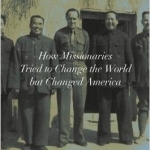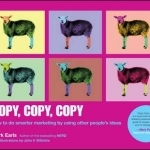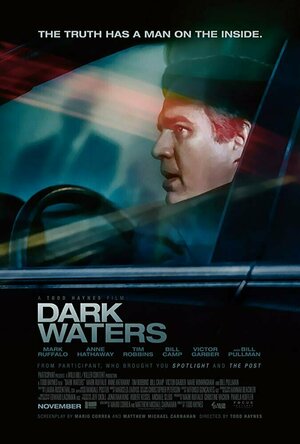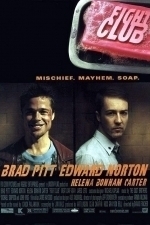
Talking Metal
Podcast
Hosts Mark Strigl and John Ostronomy, talk and play METAL with special guests, headbangers, and...

Protestants Abroad: How Missionaries Tried to Change the World but Changed America
Book
They sought to transform the world, and ended up transforming twentieth-century America Between the...
Joe Elliott recommended Every Picture Tells a Story by Rod Stewart in Music (curated)
Kenneth Lonergan recommended Dark Waters (2019) in Movies (curated)

My Spending - Expense Tracker
Finance and Business
App
Do you know how much you spend monthly? are you still using papers to calculate how much you spend? ...
BankofMarquis (1832 KP) rated Fight Club (1999) in Movies
May 7, 2020
The second rule of this review is that I CANNOT TALK ABOUT THIS MOVIE!
So...I'm going to talk about this movie.
David Fincher's 1999 mind-tripping epic about 2 friends who join forces to create chaos is not the movie that you think it is. Not even if you've seen it.
Directed by one of the my favorite Directors of all time, FIGHT CLUB tells the story of Edward Norton's character (who's name is never mentioned in the film) who is suffering from insomnia and an all around lack of enthusiasm for life - that is until he runs into 2 people that will profoundly change his life - Marla Singer (Helena Bonham Carter) and, especially, Tyler Durden (Brad Pitt).
This film was poorly marketed by the studio at the time of it's release - focusing on the "FIGHT CLUB" aspect of this film - and if that is turning you away from this film, then you are missing out, for the "Fight Club" aspect is only one sliver of what this film is about. This film is an incredibly funny parody of society and "fitting in" with over-the-top scenarios and characters masquerading as people and events in "the real world".
David Fincher is perfectly suited for this work. He handled the pacing, style and subject matter with aplomb balancing seriousness and absurdity perfectly to create a subtle parody. It is a masterwork in that you don't notice his Direction - always a mark of a good Director.
Edward Norton, of course, is wonderfully cynical as the Narrator. When this film came out, I went to see it because of him - he was (is?) an actor that (more often than not) picks quality material and delivers a quality performance. Brad Pitt, of course, has the "showier" role and he nails it. This film marked the "coming out" of Pitt as an actor for me - and he hasn't stopped (right up until his deserved Oscar this year for ONCE UPON A TIME...IN HOLLYWOOD). But, it is the performance of Helena Bonham Carter that caught my eye on this re-watch. Fight Club is one of those films that becomes a different film upon a 2nd (and 3rd and 4th and 5th...) watch - mostly because of the change in perspective of the Marla character. I've now seen this film multiple times and in this viewing it was Marla's journey that captured my attention. It is a terrific performance that is an optical illusion.
This film is not for everyone - so be warned - but if you give it a shot, I think you'll find a richly rewarding - and subversively funny - movie going experience.
Letter Grade: A
9 stars (out of 10) and you can take that to the Bank(ofMarquis)

Museums 101
Book
Looking for an A-Z, one-stop, comprehensive book on museums? Wish you were able to have one of the...

Copy, Copy, Copy: How to Do Smarter Marketing by Using Other People's Ideas
Mark Earls and John V. Willshire
Book
THE #1 HACK FOR SMARTER MARKETING We all want new answers and new solutions for the very real and...

The Rosie Project: No. 1: Don Tillman
Book
The Rosie Project by Graeme Simsion is a story about love, life and lobster every...

Open Water
Book
'A tender and touching love story, beautifully told' Observer 10 Best Debut Novelists of 2021 'A...
Literary fiction Race Cultural Novella British Literature


